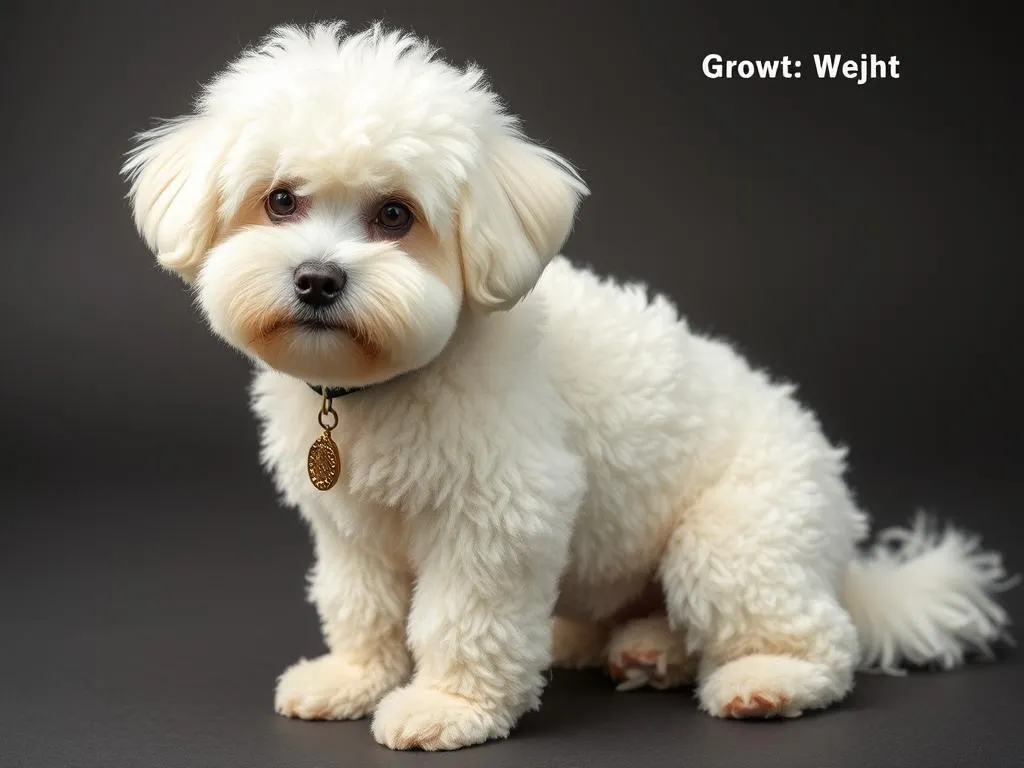
Introduction
Maintaining the health of your dog is crucial for their well-being and longevity. Regular care plays an essential role in preventing health issues and ensuring a happy life for your furry friend. Among the various breeds, the Bichon Frise stands out for its cheerful demeanor and affectionate nature. This adorable breed is often recognized for its fluffy white coat and playful personality.
In this post, we will focus on the Bichon Frise size weight growth chart to help owners understand the growth patterns of their pets. Having a clear understanding of these growth metrics is vital for effective health management, ensuring that each Bichon Frise reaches their full potential in both size and health.
Understanding the Bichon Frise
Breed Characteristics
The Bichon Frise has a rich history that dates back to the Mediterranean region. Often believed to have descended from the Barbet and the Water Spaniel, this breed has been a beloved companion for centuries. Bichon Frises are known for their friendly and playful nature, making them excellent family pets. They are also quite intelligent, which allows them to learn commands and tricks easily.
Their spirited personality means they thrive on social interaction and enjoy being the center of attention. Bichon Frises are known to be great with children and often develop strong bonds with their families.
Physical Attributes
When it comes to the physical attributes of the Bichon Frise, they typically stand between 9.5 to 11.5 inches in height. Their weight usually ranges from 10 to 20 pounds, putting them firmly in the small breed category. This breed has a distinctive curly coat that requires regular grooming to prevent matting and ensure skin health.
The Bichon Frise’s coat care is not just about aesthetics; it also plays a significant role in their overall health. Regular grooming helps to keep their skin free from irritants and infections, ensuring they remain comfortable and healthy.
Bichon Frise Size and Weight
Average Size
The average height for an adult Bichon Frise is typically between 9.5 to 11.5 inches. This size range may vary based on genetics, diet, and overall health. Factors such as breeding practices also contribute to the size variations seen in individual dogs. Understanding these variations is important for owners who wish to track their dog’s growth accurately.
Weight Standards
The ideal weight range for a Bichon Frise is between 10 to 20 pounds. This weight range may seem broad, but it allows for individual differences in body structure and build. Compared to other small breeds, the Bichon Frise tends to be on the heavier side due to its sturdy build.
Keeping your Bichon Frise within the ideal weight range is essential for their health and longevity. Overweight dogs are at a higher risk for various health issues, including joint problems and heart disease.
Growth Patterns
Understanding the growth patterns of a Bichon Frise is crucial for effective health management. This breed goes through several growth stages from puppyhood to adulthood. Puppy growth typically occurs rapidly in the first six months, after which the growth rate may slow down.
To measure and track growth accurately, owners should weigh their Bichon Frise regularly and note any changes in height. Keeping a journal can help track these measurements, allowing owners to identify any unusual growth patterns that may require veterinary attention.
Bichon Frise Growth Chart
Importance of a Growth Chart
Tracking growth is essential for dog owners, particularly for breeds like the Bichon Frise. A growth chart can help owners monitor their pet’s development and identify any potential health issues early. Deviations from expected growth patterns can indicate nutritional deficiencies, health problems, or other issues that may require veterinary intervention.
Detailed Growth Chart for Bichon Frise
Here’s a detailed growth chart for the Bichon Frise, providing an average breakdown of height and weight by age:
| Age (Months) | Average Height (inches) | Average Weight (pounds) |
|---|---|---|
| 1 | 6-8 | 2-4 |
| 2 | 8-10 | 4-6 |
| 3 | 9-11 | 6-10 |
| 4 | 9.5-11.5 | 7-12 |
| 5 | 10-12 | 8-14 |
| 6 | 10.5-12 | 9-15 |
| 7 | 10.5-12 | 10-16 |
| 8 | 10.5-12.5 | 11-17 |
| 9 | 10.5-12.5 | 12-18 |
| 10 | 10.5-12.5 | 13-19 |
| 11 | 10.5-12.5 | 14-20 |
| 12 | 11-12.5 | 15-20 |
This chart serves as a general guideline, and individual Bichon Frises may grow at different rates.
Factors Affecting Growth
Several factors can affect the growth of a Bichon Frise, including:
-
Nutrition and Diet: A well-balanced diet is crucial for optimal growth. Puppies require a diet specifically formulated for their developmental needs, while adult Bichon Frises should have a diet that maintains their weight and health.
-
Genetic Factors: Genetics play a significant role in determining the size and weight of a Bichon Frise. Responsible breeding practices can help minimize health issues and support healthy growth.
Health Care Tips for Bichon Frise
Regular Veterinary Check-ups
Routine veterinary visits are essential for maintaining your Bichon Frise’s health. These check-ups help identify any potential health issues early on. It’s recommended to have a vaccination schedule in place to protect against common diseases such as parvovirus, distemper, and rabies.
Nutrition and Diet
Providing the right nutrition is crucial at different life stages. For puppies, look for high-quality puppy food that promotes healthy growth. As they transition to adulthood, consider a balanced diet that maintains their ideal weight. Some recommended food options for Bichon Frise include:
- High-protein kibble
- Grain-free options
- Fresh fruits and vegetables as treats
Exercise Needs
Although the Bichon Frise is a small breed, they require regular exercise to keep them healthy and happy. A daily routine of walks, playtime, and mental stimulation is essential. Engaging your Bichon Frise in interactive games can also promote mental sharpness and prevent behavioral issues.
Common Health Issues in Bichon Frise
Genetic Predispositions
While the Bichon Frise is generally a healthy breed, they are prone to certain genetic health issues. Common conditions include:
- Allergies
- Hip dysplasia
- Patellar luxation
- Eye conditions such as cataracts
Preventive Care
Preventive care is vital for your Bichon Frise’s health. Regular dental care, including brushing their teeth and providing dental chews, can prevent periodontal disease. Additionally, grooming should be a routine part of their care to keep their coat healthy and free from mats.
Signs of Illness to Watch For
Being vigilant about your Bichon Frise’s health means knowing the signs of potential issues. Watch for symptoms such as:
- Changes in appetite or weight
- Lethargy or reduced activity
- Vomiting or diarrhea
- Coughing or difficulty breathing
If any of these signs appear, it’s important to consult a veterinarian promptly.
Conclusion
Monitoring the size, weight, and growth of your Bichon Frise is crucial for their overall health and well-being. By understanding their growth patterns and implementing proactive health care measures, you can ensure that your furry companion lives a long, happy, and healthy life. Owning a Bichon Frise is a joyful experience, filled with love and responsibilities that require attention to their health care needs.
Understanding how to manage their growth and health will only deepen the bond you share with your beloved pet.









